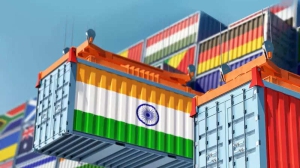For the first time, India-made testing kits for the human papillomavirus (HPV), the leading cause of cervical cancer, will undergo validation across multiple study centers using global samples to ensure accuracy. Spearheaded by AIIMS, Delhi, this project will commence by examining 1,200 samples from France sourced from the World Health Organization's International Agency for Research on Cancer (IARC) biorepository.
According to Prof. Neerja Bhatla, the lead investigator on the project, this groundbreaking initiative will evaluate the effectiveness of HPV screening test kits against international quality benchmarks.
“Once validated, these kits can significantly benefit millions of women in India and other low- and middle-income countries by enabling early detection of cervical cancer at affordable prices. Currently, available HPV test kits are priced between Rs 1,500 and Rs 3,000, but the indigenous kits are expected to be more cost-effective,†she said.
The study will be conducted with the support of DBT-BIRAC Grand Challenges India in collaboration with IARC. The testing will be performed at AIIMS, New Delhi, National Institute of Cancer Prevention and Research (NICPR) Noida and ICMR-National Institute For Research In Reproductive and Child Health Mumbai. The lab activities will begin from Monday.
Dr Bhatla said, “Cervical cancer continues to be a major problem globally. Altogether 127,000 of the 600,000 cases per year are in India. Of the 300,000 deaths across the world, 80,000 deaths are from India.â€
“That’s why an indigenous HPV test was developed to make it user-friendly, operable and accessible even in the periphery hospitals,†she added. These validation studies are important to avoid false results and eliminate the margin of error.
“It’s not that simple to validate these testing kits as it involves stringent international standards. The clinical versus analytical validity is something we need to balance. We need to follow the international criteria that have been laid down and it was something that was raised by the NITI Aayog as well,†Dr Bhatla said.
It is similar to a Pap smear test and the sample will be collected by brush or a swab from the cervix. “In a Pap smear, we stain the sample so that we can read the cytology or the map of cells. This will be a molecular test like that of COVID,†said Dr Bhatla.
Presently, HPV tests are expensive and need elaborate laboratory setups. They should meet international standards to receive WHO prequalification and have necessary quality assurance, she said.
Worldwide, cervical cancer is the fourth most common cancer in women. In India, it is the second most common cancer among women after breast cancer. Every two minutes, a woman dies of cervical cancer around the world, Bhatla said.
In India, there are approximately 1,27,526 new cases and 79,906 deaths per annum, Bhatla stated.

























